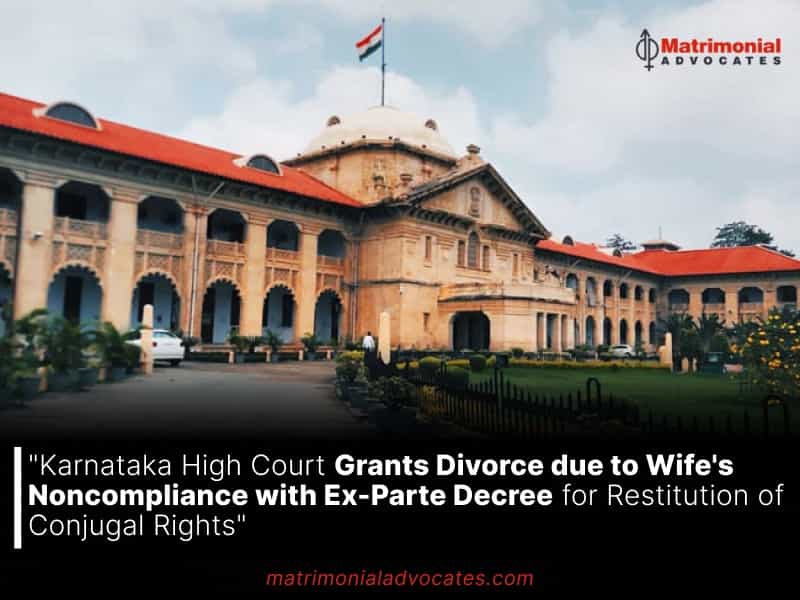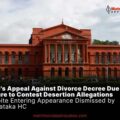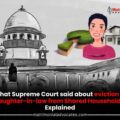
The Karnataka High Court, Dharwad Bench, has issued a divorce decree predicated upon the wife’s noncompliance with an ex-parte decree for the restitution of conjugal rights. This judicial determination occurred in the course of the Court’s adjudication of an appeal lodged by the husband. The husband had originally sought dissolution of the marriage through a divorce decree on the grounds of desertion, a request that had been rejected by the Trial Court, presided over by the Senior Civil Judge & JMFC.
A Division Bench comprising Justice S.R. Krishna Kumar and Justice G. Basavaraja held, “A perusal of the undisputed material on record will indicate that the specific ground urged by the appellant for the purpose of seeking divorce was that the respondent had deserted him and was leaving separately from the year 2013 onwards. Further, despite obtaining an exparte decree for restitution of conjugal rights in M.C.No.33/2016, the respondent did not join the petitioner nor did she comply with the exparte judgment and decree which is sufficient ground for divorce within the meaning of Section 13(1A)(ii) of the Hindu Marriage Act, 1955.”
The appellant in this case was legally represented by Advocates A.M. Gundawade and Sanhamesh S. Gulappanavar.
In the background of the case, the appellant and the respondent entered into a marriage in 2009, resulting in the birth of a son. The custody of the child was with the respondent, the mother. Initially, the husband (appellant) issued a legal notice to the wife (respondent) to reconcile and rejoin him. As she did not comply with this request, the appellant filed a legal application seeking the restitution of conjugal rights.
Subsequently, the court issued a judgment and decree in favor of the appellant, granting an ex-parte decree for the restitution of conjugal rights and directing the respondent to rejoin the appellant.
However, even after the issuance of the judgment and decree, the respondent did not reunite with the appellant. Consequently, the appellant filed a divorce petition on the grounds of desertion. In this subsequent legal proceeding, the respondent chose not to participate and contest the case. The appellant testified as a witness and submitted two documents – the marriage certificate and a certified copy of the initial judgment and decree – as evidence.
The High Court in view of the facts and circumstances of the case observed, “In the instant case, it is an undisputed fact that despite judgment and decree for restitution of conjugal rights having passed in favour of the appellant/husband against the respondent/wife on 05.12.2016, the respondent has not joined the appellant and there has not been any restitution of conjugal rights between the parties for more than a period of one year after decree which was passed on 05.12.2016.”
The Court observed a legal error committed by the Trial Court in its dismissal of the divorce petition. This error stemmed from the Trial Court’s failure to duly appreciate the aforementioned considerations, along with the unopposed, uncontroverted, and uncontested pleadings and evidence presented by the appellant. Collectively, these factors constituted substantial legal grounds for the issuance of a divorce decree. Consequently, the High Court deemed it necessary to annul the Trial Court’s judgment and decree and proceeded to grant legal approval to the divorce petition submitted by the appellant.
As a result, the High Court, in response, upheld the appeal, nullified the Trial Court’s judgment, and officially sanctioned the granting of the divorce.





